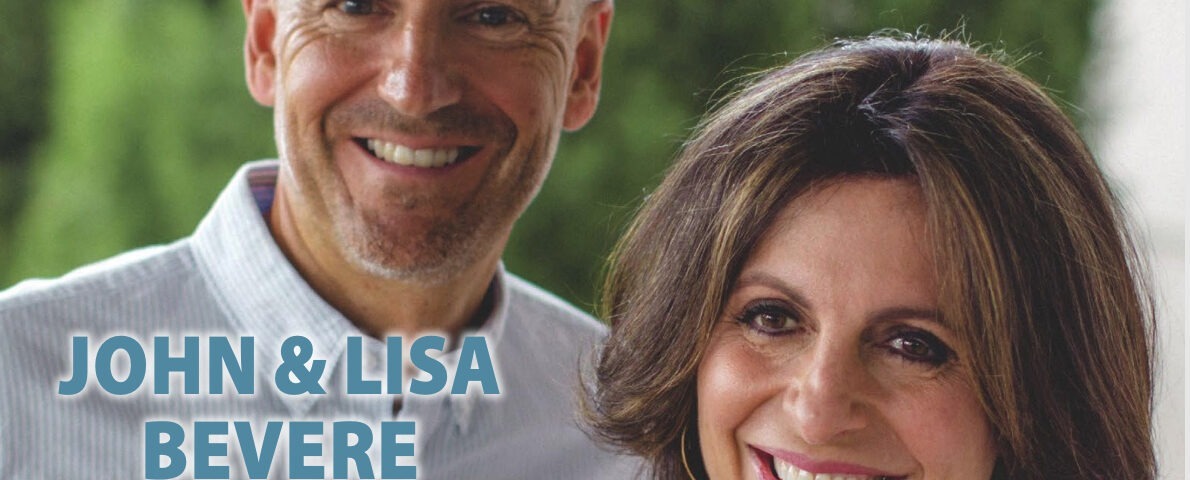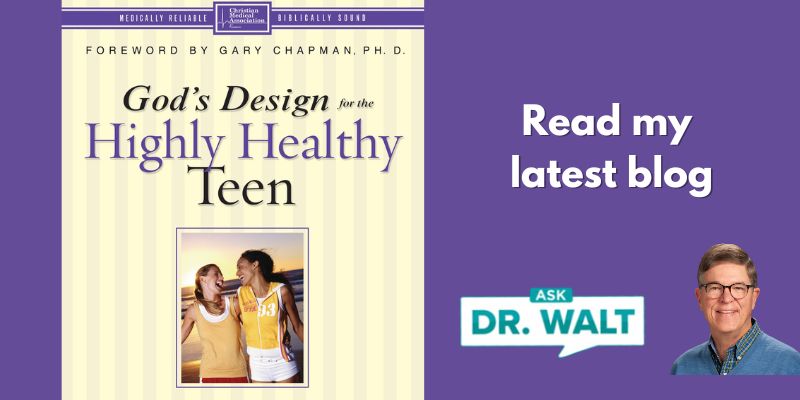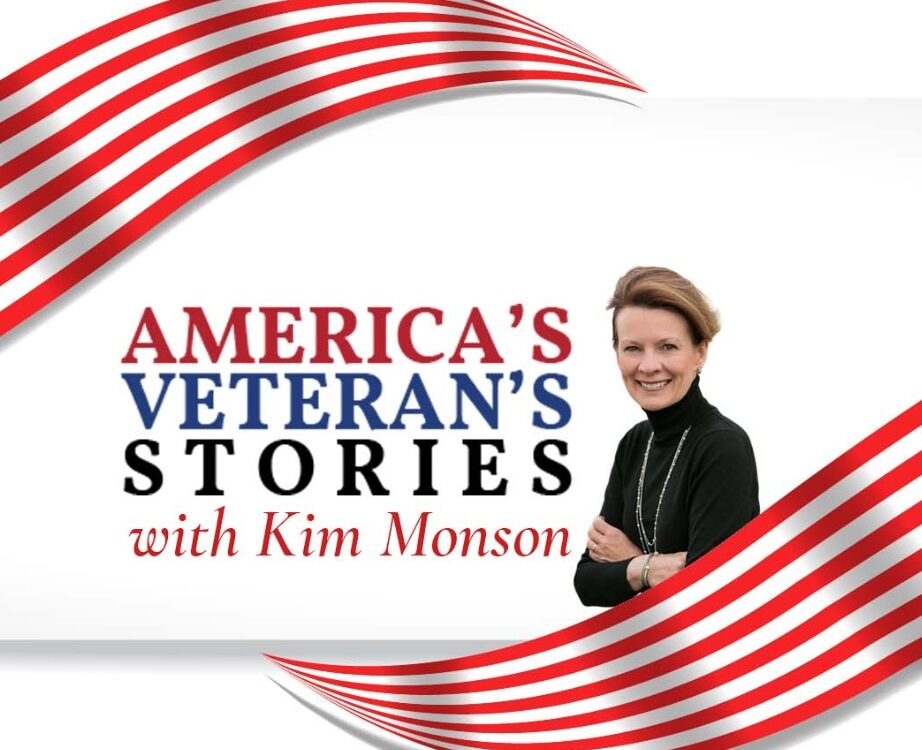“Ask Dr. Walt” column in Today’s Christian Living

Remembering Normandy
June 6, 2023
The Writer’s Studio 09 – My Interview with Steve Arterburn (Part 1)
June 9, 2023I enjoy being able to answer questions from the readers of Today’s Christian Living magazine in my “Ask Dr. Walt” column. In the May 2023 issue, I answered questions about Himalayan salt lamps, sea salt, dry spray shampoo risk, cell phone risk, and boba or bubble tea. See my answers below.
Question: Do Himalayan salt lamps have any health benefits?
Answer: Himalayan salt lamps have been increasingly popular for their ambiance. Beyond their attractive esthetics, manufacturers often claim they offer health benefits such as better air quality, improved energy, mood, and respiratory, better sleep, and reduced allergy symptoms. The theory is that the alleged benefits of the lamps come from the “release of negative ions.” According to the Cleveland Clinic, “While these lamps grow in popularity for their artful and soothing vibe, it’s best to take all the claimed health benefits with, well, a grain of salt. The Clinic adds, “If you like the lamp’s pinkish hue, there’s no need to get rid of it. Just be sure to practice good fire safety and keep the lamp in an area where it can’t be knocked over and out of reach of children and pets.”
Question: Is sea salt better than typical table salt?
Answer: Alternatives to table salt are popular, especially kosher salt, sea salt, and salts that are pink, red, blue, or gray depending upon the trace minerals in the salt deposits from which they are mined. Are any of these more nutritious than table salt? The short answer from nutritional scientists is, “Not much.” The American Heart Association says, “You can usually let your taste buds choose between kosher salt, sea salt, and table salt. They all contain about the same amount of sodium.” The AHA points out, “Kosher salt and some sea salts may have larger crystal sizes than table salt, so they may have less sodium by volume (e.g., by teaspoon or tablespoon). A teaspoon of table salt has about 2,300 mg of sodium, but a teaspoon of sea salt or kosher salt may have less sodium simply because fewer crystals fit on the spoon.” Cleveland Clinic experts add, “No matter where it comes from, salt contains the same amount of sodium chloride, the culprit behind so many heart attacks and strokes. Although table salt may be more refined, it’s the only salt with adequate amounts of iodine. You need this nutrient for general health and, especially, thyroid health.” A more adventurous, tastier, and healthier option than salt or a salt substitute (like potassium chloride) is to use more herbs and spices, or seasonings like lemon or lime juice and flavored vinegar. You can buy salt-free herb blends or make your own.
Question: Should I avoid exposure to benzene from dry spray shampoos?
Answer: Benzene is a chemical that can cause cancer (a carcinogen) and has recently been reported in spray sunscreens as well as spray deodorants and antiperspirants. However, the highest, and presumably riskiest concentrations have been reported in several dry shampoo aerosol sprays. ConsumerLab.com writes, “Be aware that the benzene in these products is most likely from aerosol propellants in the sprays, and probably not from the ingredients of the dry shampoo itself.” CL adds, “There is probably no safe level of exposure to benzene, and all exposures constitute some risk. Studies of petroleum workers exposed to benzene by inhalation have clearly associated the chemical with the development of cancers of blood tissues, such as leukemia, at continued exposure to levels as low as 1 ppm.” You can reduce exposure to benzene by choosing a product with the least amount of benzene (see the list at ConsumerLab.com here), using it in a well-ventilated area, not directing the spray toward your face, and taking a deep breath before spraying and not breathing while spraying and for 5-10 seconds afterward.
Question: Are there health risks to cell phones?
Answer: When patients ask me this question, it’s because they are concerned that radio frequency energy (RFE) from cell phones will cause cancer or other serious health hazards. The FDA says, “Based on the evaluation of the currently available information … the weight of scientific evidence has not linked exposure to [RFE] from cell phone use with any health problems” (tinyurl.com/yfb3m4nd). Nevertheless, if you want to reduce RFE, the CDC recommends, getting a hands-free headset that connects directly to your phone or using a speakerphone more often. If you have a pacemaker and are concerned about how your cell phone use may affect it, contact your health care professional. But beyond the RFE concerns, there are many concerns about the potential negative effects of cell phones. For example, cell phones distract people at work, in classrooms, while driving or operating machinery, or while walking. For some people they can be addictive – with studies showing people can experience withdrawal symptoms when away from their phone for a short period of time. For others, cell phones can disconnect them from face-to-face relationships. Furthermore, scientists have shown that excessive cell phone usage can lead to stress, anxiety, depression, sleep disturbances, and relationship issues. So, if you choose to have a cell phone for convenience and safety, steward it as you would any other tool by using it as little as you can to help you, but prevent it from taking over your life or face-to-face relationships.
Question: Is bubble tea healthy?
Answer: Bubble tea is increasingly popular. It is said to have originated in Taiwan in the 1980s. It’s also known as boba tea, pearl tea, or tapioca tea and is made out of a tea base (black, green, or white) that is mixed with milk and tapioca “pearls” – black chewy balls made from the starchy cassava root – which look like bubbles as they come up through a straw. Common additions include fruit, syrup, yogurt, fruit jelly, or pudding. According to WebMD Health, “Boba tea provides very few health benefits. In most cases, boba tea contains high levels of sugar.” Asking for fewer tapioca pearls and fewer or no added toppings can significantly reduce the amount of sugar. WebMD adds, “Like many sugary drinks, boba tea is best enjoyed in moderation.” In addition, there have been concerns about caffeine levels and digestive safety. Parents magazine has a nice article on the safety of bubble tea for kids.
Walt Larimore, MD, has been called one of America’s best-known family physicians and has been named in the “Guide to America’s Top Family Doctors,” “The Best Doctors in America,” “Who’s Who in Medicine and Healthcare,” and “Who’s Who in America.” He’s a former Vice President and Physician in Residence at Focus on the Family and the American Life League has named him a “Rock-Solid Pro-Life” awardee. He’s also an award-winning medical journalist and the best-selling author of over 40 books. He and his wife of nearly 50 years, Barb, have two adult children and reside in Colorado Springs. You can follow Dr. Walt at www.DrWalt.com and on Facebook at “DrWalt.com”. Have questions for Dr. Walt? Email them to editor@todayschristianliving.org.
© Copyright WLL, INC. 2023. This blog provides healthcare tips and advice that you can trust about a wide variety of general health information only and is not intended to be a substitute for professional medical advice, diagnosis, or treatment from your regular physician. If you are concerned about your health, take what you learn from this blog and meet with your personal doctor to discuss your concerns.







